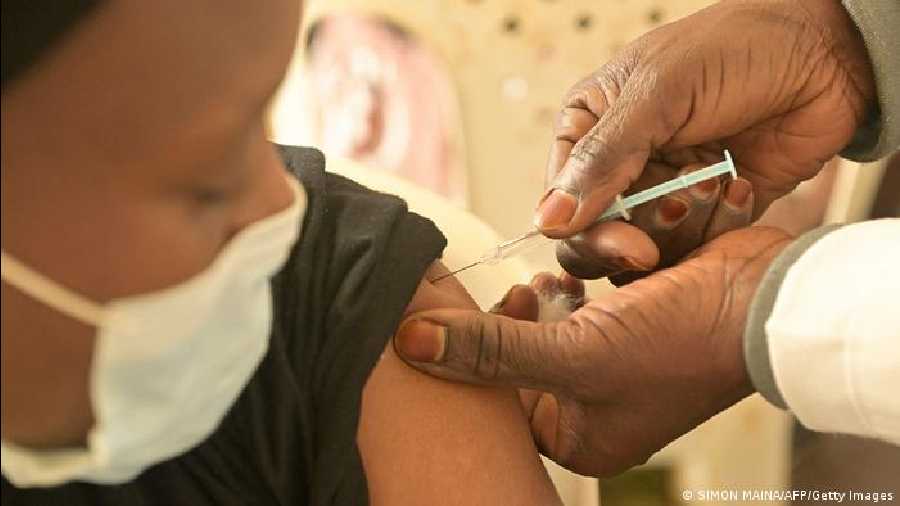The fact that Alexander Zverev regularly peers into his tennis bag during breaks has certainly not gone unnoticed. It even led to rumors that he might be illegally receiving coaching tips via social media.
However, Germany's Davis Cup captain has stopped such rumors dead in their tracks. "He's always checking his blood sugar level then [when he looks into the bag]. I sit right there, and I can see exactly what he's doing," Michael Kohlmann told DW.
Zverev has suffered from diabetes since being diagnosed with the disease at the age of three — as the 25-year-old revealed this summer. At the time, doctors believed it was impossible for someone with Type I diabetes to reach the highest level of their sport.
"I think today I can rightfully say they were wrong," Zverev said.
However, the German is only able to perform at the highest level because he always carries everything he needs with him to manage the disease, and he knows his body very well.
How does diabetes affect the body?
In people with Type 1 diabetes (diabetes mellitus), the body is not able to produce insulin. This leads to an accumulation of sugar, as it cannot be absorbed by the body's cells. This can lead to a reduced level of consciousness or complete loss of consciousness (diabetic coma). Therefore, people with Type 1 diabetes need to inject themselves with insulin daily.
However, most diabetics suffer from the Type 2 version of the disease. This is a chronic metabolic disease in which the body develops insulin resistance over time. Unlike Type 1, elevated blood glucose levels in Type 2 can be lowered with a healthy diet and plenty of exercise.
Exercise and diabetes
"You can achieve an insanely high level of [athletic] performance with this condition," Christine Joisten, from the Institute for Movement and Neuroscience at the Sport University in Cologne, told DW.
"The health benefits of exercise that we observe are incredible. And this is across the board, including positive psychological effects like increased self-esteem," the scientist said.
Although there is no cure for diabetes, the condition, she added, can be very much kept in check.
For an athlete at any level to achieve their full potential, it is vital to get to know their bodies extremely well. Sport empties the sugar stores in the muscles and liver, and the body must replenish them after any sporting activity.
"Injected insulin, however, does not adapt to the body," said Joisten. That's why it's important to take a very close look at how each individual reacts to the respective stresses.
Maintaining a normal blood-glucose level is a major challenge during training, competition and even travel. Medical advances now make it possible to change the insulin being administered and the supply of nutrients within minutes in order to achieve optimal blood-glucose control. This should be done under the supervision of a physician in both the short- and long-term.
Which sports can diabetics be successful in?
"You can actually take part in all kinds of sports," Joisten said.
The most important factor in getting a positive effect is that the sporting activity is practiced on a regular basis, she said. However, there are also sports that are riskier than others — because they could put other people in danger as well. A couple of examples are diving or rock climbing.
"If the person in question becomes hypoglycemic and no longer in control of [their] body, this can lead to problems for everyone involved," Joisten stressed.
This means that athletes looking to pursue these kinds of sports need to be even more meticulous about managing their disease than other diabetics. The insulin dose and the carbohydrate intake needs to be meticulously calibrated for such activities. Again, in such cases, seeking the advice of a doctor is highly recommended.
Good preparation vital
In Alexander Zverev's case, preparing for a match requires a few adjustments compared to the rest of the Davis Cup team.
"We have known about the problem for some time, of course. That's why we try to let him know about our training times early on and, if possible, hold training the day before at the same time as the match. Then Alexander can adjust his diet and everything else exactly in line with that," German Davis Cup captain Kohlmann said. These adjustments, though, are quite minor.
"He really has a handle on that as a professional athlete," Kohlman added. "And he has a lot of experience with it and knows exactly how to adapt to any given situation."
Pitfalls to avoid
The worst thing an athlete could do would be to "ignore" the disease, Joisten said.
"You have to deal with sports wisely. You need to approach them not just as part of your treatment, but also as part of your life."
From Deutsche Welle Newsfeed











